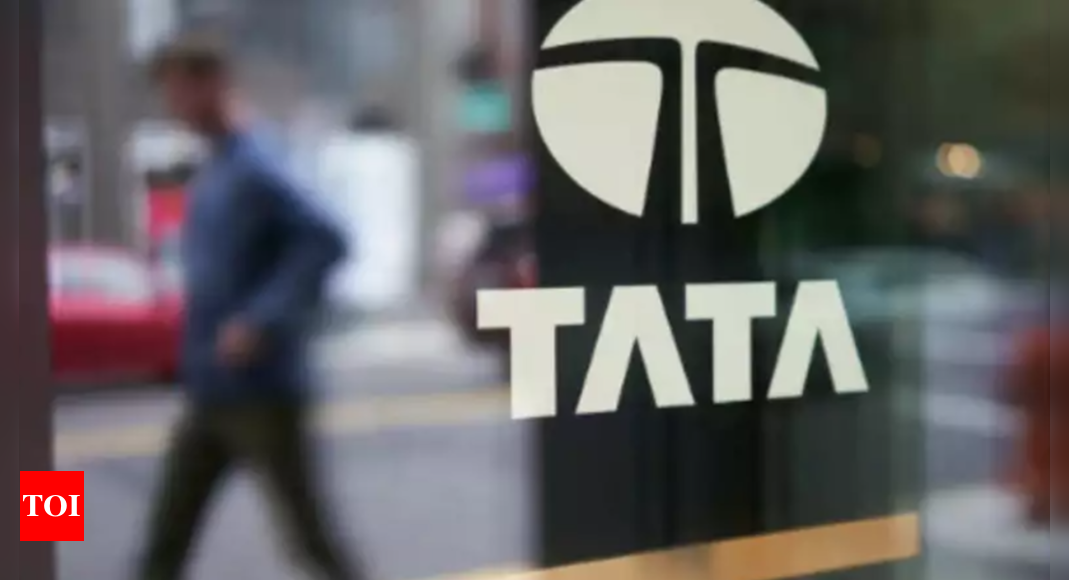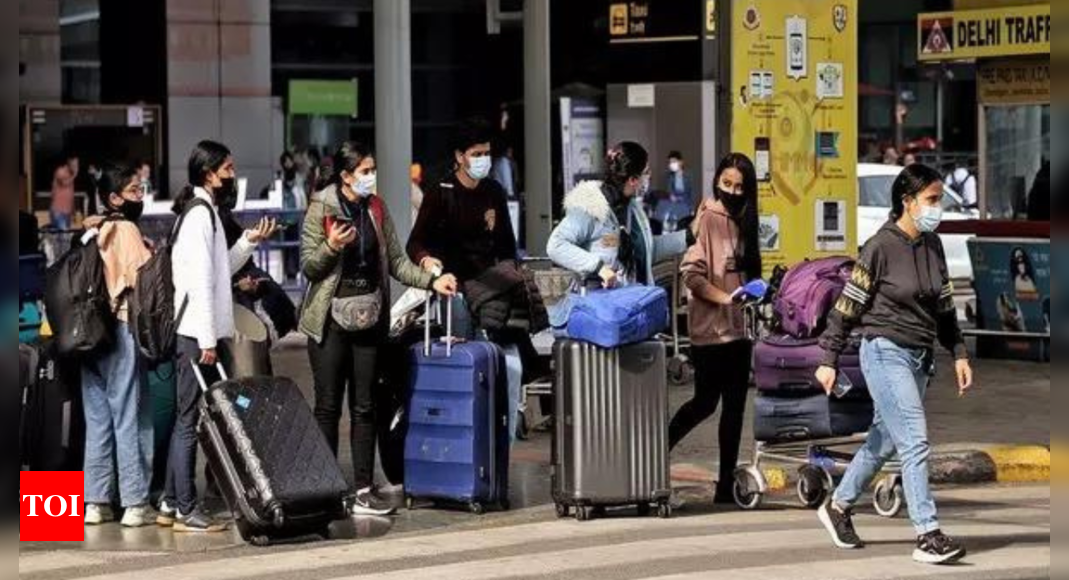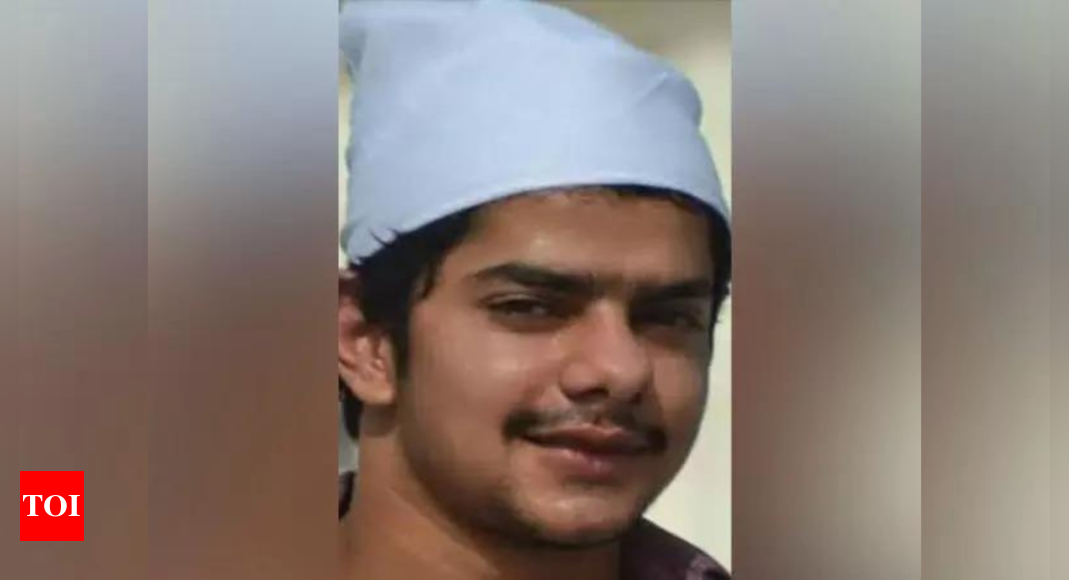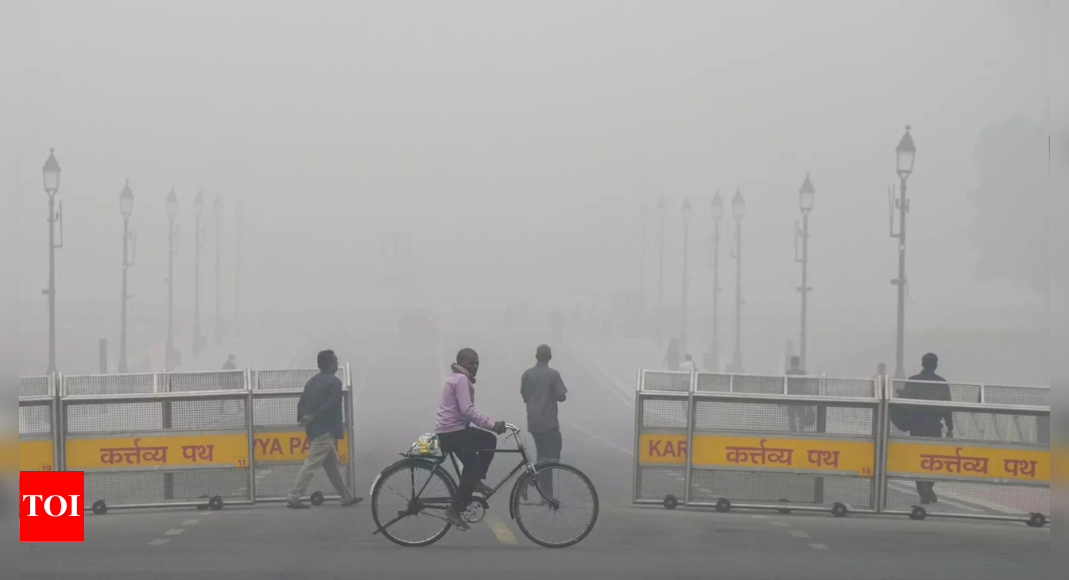
New Delhi: With air pollution in Delhi reaching life-threatening ‘severe plus’ levels, Supreme Court on Monday directed Delhi and NCR states – UP, Haryana, Rajasthan and Punjab – to strictly enforce stage IV of the Graded Response Action Plan (Grap) and immediately take a call on measures such as closing schools for all classes, allowing govt and private employees to work from home and shutting industries.
It also ordered that these restrictions would continue till further orders from the court, even if AQI drops below 401, the ‘severe’ category threshold.
The judicial crackdown came on a day when Delhi suffered a dystopian nightmare with a thick layer of pungent smoke filling the air. The day’s average AQI was 494 at the highest end of ‘severe-plus’, the worst in eight years and the second-worst on record. The 24-hour average AQI maxed out at 500 at 15 stations at 5pm and citizens were left coughing and teary-eyed even on short exposures to the toxic fumes.
The bench of Justices Abhay S Oka and Augustine George Masih slammed the “wait and watch” approach of the Commission for Air Quality Management (CAQM) in enforcing Grap measures. Noting that grade III measures were enforced 48 hours after AQI level crossed 400 level, it directed that commensurate measures must be enforced immediately after the AQI level crosses the threshold and the commission should not wait for improvement in quality of air on the basis of the met department’s forecast. SC administration also issued a circular in the evening advising all, including lawyers and judges to wear masks.
Pleading for closure of all classes in schools, senior advocate Gopal Sankaranarayanan brought to court’s notice that Delhi govt was allowing physical classes for classes 10 and 12, and contended that same number of school buses were running on roads to ferry them. The court, thereafter, ordered, “States should take an immediate call to stop physical classes of all standards up to class 12.”
Meanwhile, UP govt told the SC that it had invoked Grap-4 measures from 8am onwards on Monday.
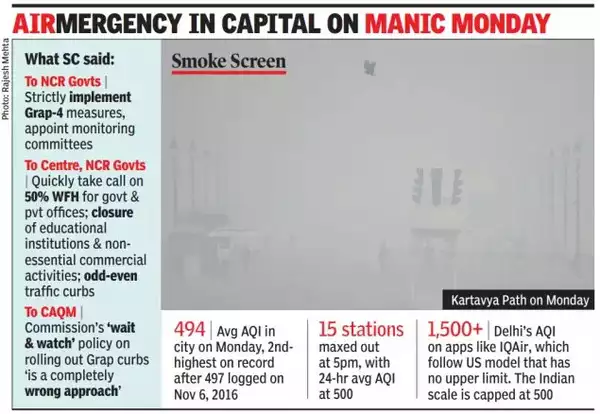
‘Provide for more stringent actions under GRAP III, IV’
We direct all govts of NCR to strictly implement stage 4 of Grap. All states will immediately constitute teams for monitoring implementations of actions required under stage 4. NCR governments and the Centre will have to immediately take a call on actions provided in clauses 6 (allowing public, municipal and private offices to work on 50% strength and the rest to work from home), 7 (decision on permitting Central govt employee work from home) and 8 (closure of educational institutions, non-emergency commercial activities and plying of vehicles on odd-even basis etc) of stage 4 and place the decision taken on the record before the next date,” the bench said.
The bench also directed CAQM to incorporate more stringent actions in stages 3 and 4 of Grap, and not leave its implementation to the discretion of the government or local authorities. SC said that CAQM’s should be preemptive and it should not wait to enforce measures, after senior advocate Aprajita Singh, who is assisting the court as amicus curiae, said that AQI had breached 400 in November 12 itself but Grap 3 measures were enforced after 48 hours.
“From the submissions made across the bar and from minutes of the meeting dated November 13, 2024, we find that the approach adopted by the sub-committee of the commission is contrary to what is observed in paragraph three of this court’s order dated October 29, 2018. The direction was to EPCA to take preemptive steps under Grap. The approach adopted by the commission seems to be that they have decided to wait for improvement of AQI and therefore implementation of stage 3 and stage 4 was delayed. This is completely a wrong approach,” the court said.
It also directed the states to create grievance redressal mechanisms to enable the citizens to lodge complaints of violation of actions under stage 4 and ordered them to file an affidavit on compliance of all its directions by Thursday and posted the case for further hearing on November 22.




